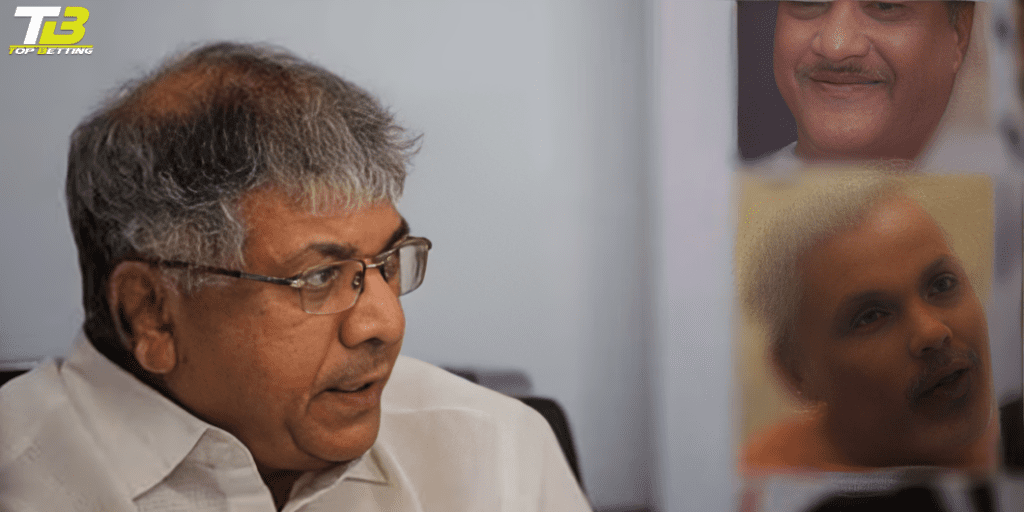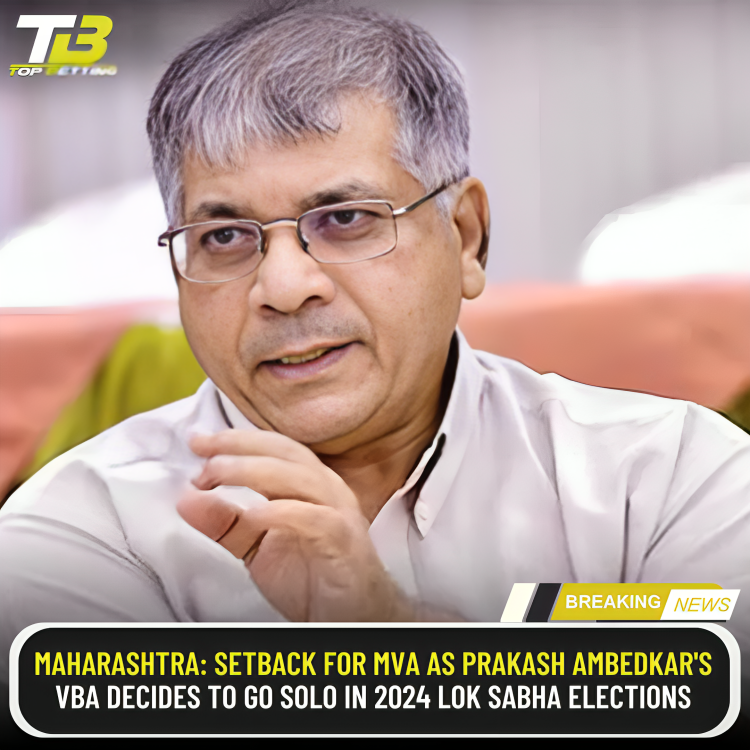
Prakash Ambedkar VBA decides to go solo
In a significant political development, the Maharashtra Vikas Aghadi (MVA) alliance, comprising the Shiv Sena, Nationalist Congress Party (NCP), and Indian National Congress (INC), has encountered a setback as Prakash Ambedkar’s Vanchit Bahujan Aghadi (VBA) has decided to contest the 2024 Lok Sabha elections independently. This decision by the VBA could potentially reshape the political landscape in Maharashtra and impact the electoral prospects of the MVA alliance.
Prakash Ambedkar declared the names of eight contenders, adding that the name of the candidate for Ramtek would be revealed later in the afternoon.
In Maharashtra, Prakash Ambedkar of the Vanchit Bahujan Aghadi broke with the Maha Vikas Aghadi (MVA) and said that his party would stand alone in the 2024 Lok Sabha elections. This occurs one day after the party issued a deadline for determining his seat demands.
Prakash Ambedkar named eight candidates on Wednesday during a news conference in Akola, adding that the name of the candidate for Ramtek will be revealed later in the afternoon.
He has partnered with community-based organisations such as the Maratha community and the OBC Federation. Ambedkar claimed that Manoj Jarange Patil was not yet ready for consideration by the MVA.
The Congress, the NCP (Sharadchandra Pawar), and the Shiv Sena (UBT) make up the Maha Vikas Aghadi.
Notably, the VBA has been making a lot of effort to join forces with the MVA in order to take on the NDA, which is led by the Bharatiya Janata Party, in the Lok Sabha elections.
The chief spokesperson and state vice president of the Vanchit Bahujan Aghadi (VBA), Siddharth Mokle, had earlier said that a false narrative was being circulated to suggest that the party was to blame for the MVA’s delay in deciding on a seat-sharing arrangement for the Lok Sabha elections.
“The VBA was educating its supporters on developments in the seat-sharing mechanism and making statements on a regular basis. About fifteen parliamentary constituencies, the MVA constituents are at odds. He was reported by news agency PTI as stating, “All three parties have staked claims on the remaining five seats, while the Congress and Shiv Sena (UBT) are at loggerheads in 10 seats.”
The VBA hurt the UPA candidates’ chances of winning the 2019 Lok Sabha elections in a number of seats, including Nanded, Solapur, Hatkanangale, Beed, Parbhani, and Sangli, which ultimately benefited the NDA.
Background:
The MVA alliance emerged victorious in the 2019 Maharashtra Assembly elections, forming the government in the state after a dramatic political realignment. Led by Chief Minister Uddhav Thackeray of the Shiv Sena, the coalition aimed to provide stable governance and address the socio-economic challenges facing the state.
Prakash Ambedkar, the grandson of Dr. B.R. Ambedkar and a prominent Dalit leader, founded the VBA ahead of the 2019 elections with the objective of championing the rights and interests of marginalized communities, including Dalits, Adivasis, and Other Backward Classes (OBCs). The VBA’s entry into the political arena posed a significant challenge to traditional political players and garnered substantial support from segments disillusioned with mainstream politics.
The VBA’s decision underscores the growing assertiveness of regional players and the complexities of coalition politics in Maharashtra. It highlights the challenges faced by traditional alliances in managing diverse interests and balancing power dynamics within the broader political framework.
Implications of VBA’s Decision:
Impact on MVA’s Electoral Prospects: The VBA’s decision to contest the Lok Sabha elections independently could weaken the MVA’s electoral prospects, particularly in constituencies with significant Dalit and minority populations. The VBA’s presence might split the anti-BJP vote, potentially benefiting the Bharatiya Janata Party (BJP) and its allies.
Dalit Assertion and Representation: Prakash Ambedkar’s decision underscores the VBA’s commitment to asserting Dalit rights and aspirations independently of mainstream alliances. By going solo, the VBA aims to consolidate support among Dalit communities and project itself as a formidable political force.
Coalition Dynamics: The VBA’s departure from the MVA alliance reflects underlying tensions and disagreements within Maharashtra’s political landscape. It highlights the challenges of managing diverse coalition partners and balancing competing interests within the broader anti-BJP front.
Electoral Strategy and Outreach: With its decision to contest independently, the VBA is likely to intensify its grassroots mobilization efforts and focus on constituency-level politics. The party may target specific constituencies where it enjoys significant support, amplifying its message of social justice and inclusive governance.
Conclusion:

The VBA’s decision to contest the 2024 Lok Sabha elections independently marks a significant development in Maharashtra’s political landscape. It reflects the complex dynamics of coalition politics and the evolving strategies of regional players in the state. As the political scenario continues to unfold, the MVA alliance faces the challenge of recalibrating its electoral strategy and navigating the shifting alliances and aspirations of key stakeholders. The upcoming elections will test the resilience and adaptability of Maharashtra’s political actors as they seek to secure electoral victories and shape the state’s future trajectory.











